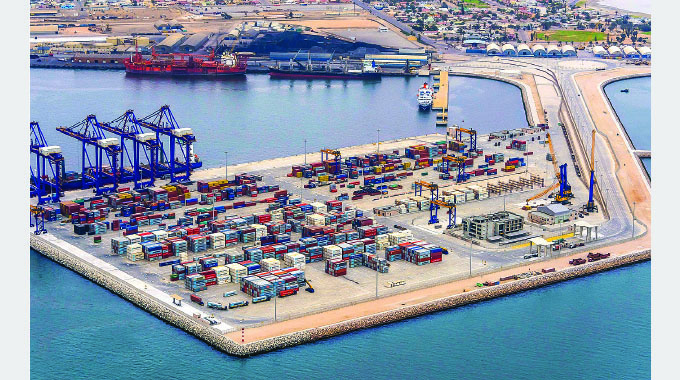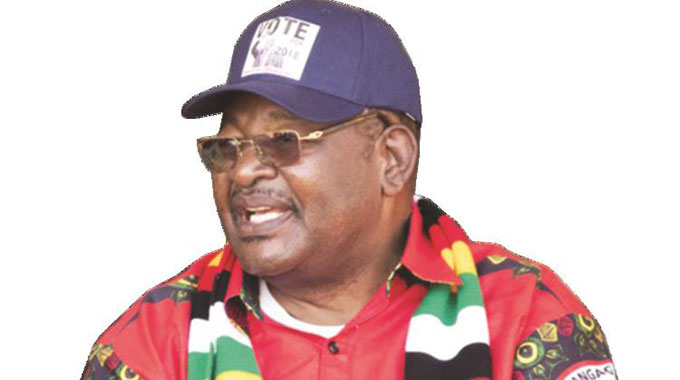Editorial Comment: Only Zimbabweans can support local parties

With elections coming up in 11 or 12 months time about the only thing that can be predicted is that a lot of people will want to campaign openly and a lot of people, including a lot of foreigners, will want to interfere in the democratic process where Zimbabweans choose their councillors, their Members of Parliament, and their President.
Under our Constitution there is not much that Zimbabweans cannot do when it comes to elections, so long as they do it totally peacefully and when it comes to money and other matters out in the open.
Anyone, and any group of like-minded people, can found a political party. This does not need any fancy documentation or book of rules and the founders can easily allocate all the top posts to themselves without asking anyone else.
One of our largest opposition parties was founded on precisely these lines and legally has no members, just bosses, although recent by-elections showed it has some support.
If a party wants to contest an election as a party, no matter how big or small or how well-structured or unstructured, it needs to register with the Zimbabwe Electoral Commission.
This is not to get approval or anything like that, but to get their name or abbreviation and their logo on the ballot papers.
ZEC will refuse to accept a name or logo that are too similar to those of a previously existing party and will obviously refuse to accept names or logos that contain obscenities or which advocate criminal activity or violence.
But once a party has been founded, no matter how informally, it falls under a small number of legal regulations connected to finance. It can say pretty much what it likes, so long as it does not urge crime or violence.
At the extreme it can even run on a platform that Zimbabwe should become a foreign colony again, although that will not get votes.
But it must be financed by Zimbabweans and cannot accept foreign money directly or indirectly. Larger parties, those that can assemble a modest block of seats in the National Assembly, share in an annual payout from the Government through the Budget.
This was introduced to ensure that parties that attract a reasonable degree of support and represent a block of opinion are adequately funded.
Normally these would be the majority party, the one that forms the Government, and at least the largest opposition party although if opposition votes are split there could easily be more than two parties in funds.
Small parties, which are often just a pressure group, need to fund themselves. Keeping foreigners out of our political processes is not unique to Zimbabwe. Most countries ban this, or if there is no ban then it must be right out in the open so all voters know.
We saw in the US there were even investigations by the FBI after allegations were made that there was some sort of foreign meddling in the 2016 elections.
Over the weekend, President Mnangagwa in his weekly newspaper column was vocal about some countries and some embassies meddling in Zimbabwean politics.
He named no names, but made it clear he found this unacceptable, and it is banned under the international treaties that govern diplomatic relations and given foreign diplomats all sorts of immunity and protection in the country where they are based.
Even when wars break out, the diplomats of the warring parties in each other’s country are carefully protected and assisted in leaving the country.
If a country dislikes a law or a policy in another country it can say this.
Zimbabwe itself complains, for example, about sanctions laws in some countries.
But Zimbabwe does not go around funding political parties in those countries to get the law it dislikes changed. It tells the country it does not like the law and why; that is normal diplomacy and in fact part of our engagement drive. But we take no underhand actions.
Embassies sometimes have special programmes to help groups of Zimbabweans.
These are all quite legal, outside the political arena, although embassies are supposed to tell the Government what they are doing.
But we saw a couple of years ago, for example, the Chinese Embassy mobilising its nationals living in Zimbabwe to help rehabilitate an infectious diseases hospital owned by Harare City Council, to the general thanks of all. The Chinese Ambassador did his hard work all out in the open without any problems.
There has been a lot of odd debate on the proposed amendments to the Private Voluntary Organisations Act, especially and curiously to the clauses that will criminalise a PVO getting involved in party politics, or organising its work on the basis of the political party affiliations of those they help or support.
And the amendments will also make it clear that all financial matters must go through the banking system, and that leaves a paper trail so it will be very easy for a PVO to prove it is on the up-and-up, as well as easy to ensure it is not being used, deliberately or accidentally, as a conduit for money laundering and dirty money.
Since Zimbabweans have an absolute right to be involved in party politics, so far as citizens are concerned all the amendment does is ensure a Zimbabwean keeps their political activity and their PVO activity in separate boxes and separate bank accounts. They can do both without problems but not at the same time.
Foreigners and Zimbabwean PVOs accepting foreign support have to ensure that this support is not dirty money and not being used for party politics.
A fair number of PVOs get foreign support to build schools and hospitals, to provide relief for distressed people and even to press civic agendas that do not involve party politics.
The amendments do not stop this, only make it crystal clear that the movements of money have to be out in the open and that this money is not being used for partisan politics.
The Act itself and the previous legislation it replaces going back for many decades follow the standard rules that money raised from the public has to be accounted for.
So PVOs do need to keep a decent set of books and the amendments will make no difference to those who have always acted honestly and properly.
It will make a difference to those who want to fund political parties using PVO money, to those who are using something quite praiseworthy, such as uplifting women, to limit this to people who support a particular party or to use it to sell a particular party or political programme.
So we understand why a tiny fraction of PVOs and a handful of embassies are so upset.











Comments